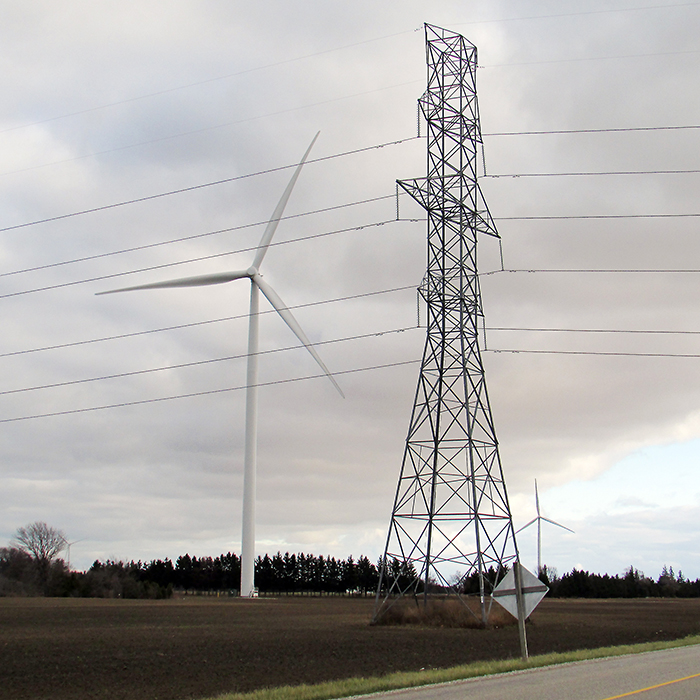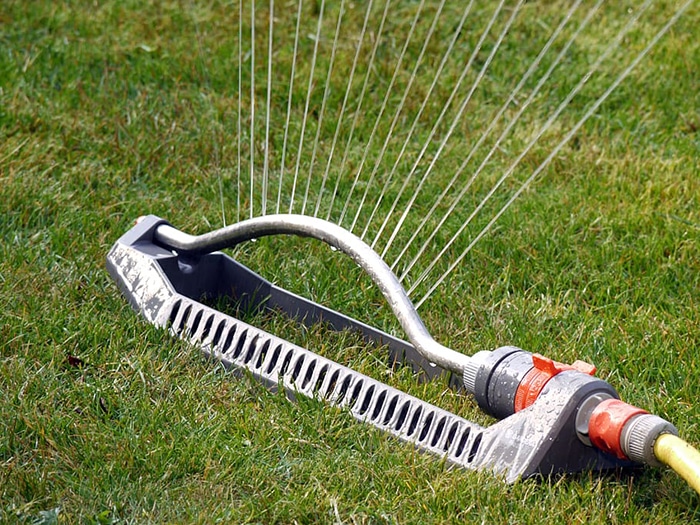
By Pam Wright
Local Journalism Initiative Reporter
Dave Lusk has questions.
The North Kent-area farmer wants to know if Hydro One’s new St. Clair Transmission Line is going to cause further harm to the aquifer that supplies water to his already fouled well.
“I’m always worried about my well,” the Green Valley Line resident told The Voice recently. “As it stands, I can’t even get water out of it now. I’m worried this new construction is going to hurt my neighbours’ wells.”
Plagued with undrinkable black water since nearby wind farms were constructed, Lusk is concerned the utility’s mega transmission project will create more damage.
“I’m not exactly sure how they build them,” he added, noting his well is only 44 feet deep. “With all the technology we’ve got now, they should be able to do something that doesn’t disturb the aquifer.”
As part of the new transmission line that will run from Lambton County to the Chatham Transmission Station, three existing towers need to be replaced on Lusk’s farm. He said Hydro One is looking for a 150-foot easement through the width of the property.
Because nearby wells are shallow, the long-time farmer believes the threat is real. And while he’s given up on his own water, he wants others to be aware of the potential for problems.
Lusk is also hoping that Hydro One will conduct baseline water testing as is being recommended by veteran hydrogeologist Bill Clark. Clark, who is very familiar with the Chatham-Kent black water issues, said to be caused by the construction of wind turbines, has carried out numerous tests over the years of affected wells, including the Lusk well.
Sonny Karunakaran, Hydro One’s director of project delivery, said the utility is listening to concerns from residents along the line and will continue to engage with the public, as geo-technical studies of the area are ongoing.
Kevin Jakubec, co-founder of the Water Wells First water advocacy group, is concerned with the project. He said there are “well-founded concerns” within the professional hydrogeologist community with regard to the St. Clair Transmission Line footprint.
“There are concerns that any construction near or into the aquifer in Chatham-Kent will result in the loss of water wells and contaminate additional wells with sediment known to contain heavy metals, including arsenic, lead and cadmium,” Jakubec said.
The new Hydro One St. Clair transmission line will be constructed in an area where the all-hazard water well investigation conducted by the Ford government in 2021 found that the water wells in Chatham township had deteriorated significantly from 2017 to 2021 after the construction of the North Kent Wind farm.
“If Hydro One is confident in their foundation design, then they should want to establish a water well baseline test zone to demonstrate proof to the public that no water wells will be impacted by the new transmission line,” Jakubec said. “Hydro One should show they are good stewards of the environment.”
While the route has been selected, utilizing 80 per cent of the original line’s footprint, Karunakaran said the construction plans have yet to be finalized.
“We’re at a stage where we continue to develop our design,” Karunakaran told The Voice, adding many factors must be considered, including the impacts on agriculture and species-at-risk.
Partnerships and open engagement with residents along the line’s corridor are “really important,” he added.
“We will continue to meet with residents,” Karunakaran said. “Hopefully we can allay any fears.”
The towers that need to be replaced, like the three that run through the Lusk farm, are nowhere near as heavy as the original towers that were erected more than 50 years ago, he explained.
Plus, Karunakaran said, the 30-metre towers – the majority of which have four legs – will be screwed into the ground as opposed to being pile driven like the wind turbines.
“We use a small excavator so there is low ground disturbance,” Karunakaran said, noting proper depths of the tower bases depend on the types of soil where they are located.
“We’re confident we are able to construct this in a manner that doesn’t affect the groundwater sources,” he said.
The new St. Clair Transmission Line is one of five new lines to be constructed by Hydro One to improve access to clean energy throughout Southwestern Ontario. The new infrastructure will help boost industry and the agricultural community. The region’s electricity needs are expected to quadruple by 2035.






